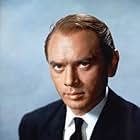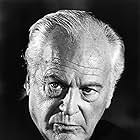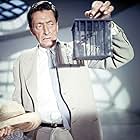IMDb RATING
7.0/10
4.2K
YOUR RATING
World War II drama about the 1943 battle around the Neretva River between Axis forces and Yugoslav partisan units.World War II drama about the 1943 battle around the Neretva River between Axis forces and Yugoslav partisan units.World War II drama about the 1943 battle around the Neretva River between Axis forces and Yugoslav partisan units.
- Nominated for 1 Oscar
- 1 win & 1 nomination total
Sergey Bondarchuk
- Martin
- (as Sergej Bondarcuk)
Velimir 'Bata' Zivojinovic
- Stole
- (as Bata Zivojinovic)
Howard Ross
- Mario
- (as Renato Rossini)
Nikola-Kole Angelovski
- Zika
- (as Kole Angelovski)
Stojan 'Stole' Arandjelovic
- Sumadinac
- (as Stole Arandjelovic)
Storyline
Did you know
- TriviaA poster for this film was made by Pablo Picasso, and it was only one of two movie posters he made. He did it because he was a fan of Yugoslav films and, according to people who were involved in the production, he did not ask for money for the poster--all he wanted was a case of Yugoslavia's finest wines.
- GoofsIt makes no sense for the partisans to place half a dozen of their extremely precious anti-tank guns closely spaced in the open. They make an easy target not only for the attacking tanks but even for their supporting artillery. Such weapons would always be dispersed and concealed in mutually supporting ambush positions.
- Crazy creditsAt the Neretva in occupied Europe, we fought one of the most celebrated and the most heroic battles for the wounded. Here was decided the fate of the Revolution. Here was victorious the brotherhood and unity of our peoples. Tito
- Alternate versionsThe Serbian DVD version is 160 minutes long and is a significantly different cut from any other DVD or video releases. There is no opening map and narration. The musical score is the original Vladimir Kraus-Rajteric score which kicks in very rarely. The scenes are rearranged so that Welles makes his speech to the troops near the beginning and the air attack hits Bihac simultaneously with the land battle. Almost every dialog scene is lengthened and cut slower than the English version, but there are some parts of the action scenes cut a lot tighter. For instance, this is missing the scene where Riva falls out of the truck during the Italian retreat. It is also missing the scene in the Orthodox church prior the Welles addressing the Chetniks. However, it does feature several new scenes, most notably a scene where Vasco raids a house in Prosor only to then shoot and wound his own commander, and then a second battle between the Partisans and the Italians. In this scene, Riva refuses to fire at his own men and Novak almost shoots him only for Martin to intervene. General Morelli is captured and then promptly commits suicide with a pistol. There is also a new scene where the partisans surprise attack a group of Chetniks guarding the Neretva bridge. There are several more violent shots missing from other prints - such as the Ustashans hanging an old woman and laughing when they march through Bihac. There are several more deaths during the end battle with the Chetniks such as a partisan being shot in the back when reaching for a grenade. Then at the end of the battle there is a scene where a partisan named 'Stipe' goes crazy and guns down a number of Chetnik prisoners, only to have his rank stripped from him. Curiously almost all the nationalities speak their own language; with Riva speaking Italian even with his Yugoslavian captors and Morelli speaking in German when addressing General Lohring. The only actors dubbed appear to be Yul Brynner and Orson Welles.
- ConnectionsEdited into Svjetla Sarajeva (2022)
Featured review
There exist various versions of this film – running anywhere between 102 and 175 minutes; the one I watched, dubbed in Italian, was itself around 142 – although the official Italian print is actually 134 minutes long! Over the years, I had missed out on a couple of occasions to watch this – both on Italian and local TV, as well as a VHS rental. Given its title and roster of established international movie stars – Yul Brynner, Curd Jurgens, Sylva Koscina, Hardy Kruger, Franco Nero and Orson Welles – one could be forgiven for mistaking it as yet another WWII-set Hollywood epic a' la THE LONGEST DAY (1962) and BATTLE OF THE BULGE (1965). Consequently, its eventual nomination for Best Foreign Language Film Academy Award proves at first suspect and highly surprising but, in hindsight, well deserved since the film is actually a big-budget co-production between Yugoslavia, West Germany, Italy and even the U.S.A.
While the film is mostly distinguished by the fact that it features an impressive array of battle sequences which must surely be counted among the most spectacular of its era, it must also be said that it takes care and time to show the effects that constant warfare has on the behavior of human beings: an explosives expert (Brynner) is renounced and spat at by his own people when he is forced to destroy their only way back home to stop the advancing troops; two blind men leading each other during an airborne attack are led by the sound of another man's voice already taking cover; a partisan is driven crazy when stricken by typhus; a proud Italian general (Anthony Dawson) commits suicide in a shabby room where he is held in captivity by the partisans; an Italian captain (Nero) deserts his side to join the ranks of the partisans and is taken under his wing by an artillery officer (Sergei Bondarchuk); a brother and a sister (Koscina), both members of the Yugoslav partisans, die together when hugely outnumbered during a deadly encounter with a band of long-haired renegade Chetniks led by a hesitant senator (Welles)!; a German captain (Kruger) comes to respect the determination of his enemies during combat, etc.
Despite the various strands of plot touched upon and the multitude of major and minor characters involved, the unknown director weaves a clear and expansive picture of the river Neretva conflict – at least in the version I saw; one can only wonder what an incoherent mess the shorter versions (some of them accompanied by a new score by Bernard Herrmann, no less) must have been! Incidentally, in spite of that afore-mentioned Oscar nod, THE BATTLE OF NERETVA is still highly undervalued today – no doubt, its reputation is lost among the countless WWII actioners made both by Hollywood and Euro-Cult film-makers during the 1960s and 1970s.
While the film is mostly distinguished by the fact that it features an impressive array of battle sequences which must surely be counted among the most spectacular of its era, it must also be said that it takes care and time to show the effects that constant warfare has on the behavior of human beings: an explosives expert (Brynner) is renounced and spat at by his own people when he is forced to destroy their only way back home to stop the advancing troops; two blind men leading each other during an airborne attack are led by the sound of another man's voice already taking cover; a partisan is driven crazy when stricken by typhus; a proud Italian general (Anthony Dawson) commits suicide in a shabby room where he is held in captivity by the partisans; an Italian captain (Nero) deserts his side to join the ranks of the partisans and is taken under his wing by an artillery officer (Sergei Bondarchuk); a brother and a sister (Koscina), both members of the Yugoslav partisans, die together when hugely outnumbered during a deadly encounter with a band of long-haired renegade Chetniks led by a hesitant senator (Welles)!; a German captain (Kruger) comes to respect the determination of his enemies during combat, etc.
Despite the various strands of plot touched upon and the multitude of major and minor characters involved, the unknown director weaves a clear and expansive picture of the river Neretva conflict – at least in the version I saw; one can only wonder what an incoherent mess the shorter versions (some of them accompanied by a new score by Bernard Herrmann, no less) must have been! Incidentally, in spite of that afore-mentioned Oscar nod, THE BATTLE OF NERETVA is still highly undervalued today – no doubt, its reputation is lost among the countless WWII actioners made both by Hollywood and Euro-Cult film-makers during the 1960s and 1970s.
- Bunuel1976
- Mar 18, 2008
- Permalink
- How long is The Battle of Neretva?Powered by Alexa
Details
- Release date
- Countries of origin
- Languages
- Also known as
- The Battle of the River Neretva
- Filming locations
- Production companies
- See more company credits at IMDbPro
Box office
- Budget
- $12,000,000 (estimated)
- Runtime1 hour 45 minutes
- Sound mix
- Aspect ratio
- 2.35 : 1
Contribute to this page
Suggest an edit or add missing content
































